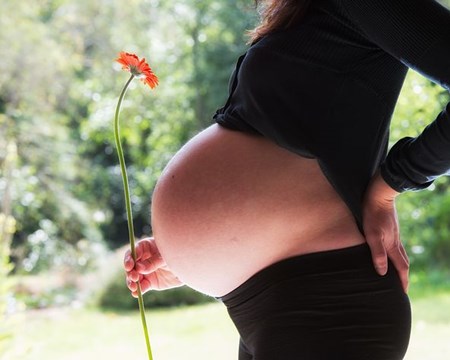Posted 10 July 2018
Group B Strep - should I get tested?
Group B Strep is the most
common cause of life-threatening infection in newborn babies in the UK, and the
most common cause of meningitis in babies under age 3 months and yet a lot of
pregnant mums know nothing about it!
At least two babies every day in the UK fall ill with Group
B Streptococcus (often known as Group B Strep or just GBS). For some, the
illness is fatal, for others, it can cause permanent disabilities.
The following information may help you to gain a better
understanding of GBS and to make an informed decision on whether a GBS test may
be right for you! (1)
What is GBS?
GBS is a type of bacteria which forms part of the natural
bodily flora of up to four in ten people. Up to a quarter of women also carry
the bacteria in the vagina. Usually, the bacteria are harmless, but in certain
cases such as in people with a compromised immune system, babies and pregnant
women, it may develop into an infection. (1)
If a woman carries GBS in her vagina and becomes pregnant,
there’s a small chance that she could pass the bacteria on to the baby during
childbirth. Because the immune system of babies is not yet developed, it is
much easier for GBS to get out of control and make them ill. For a small number of babies it can be
life-threatening, causing blood poisoning, pneumonia and meningitis. This
may lead to death in a very small number of cases. (2)
Will the NHS test for Group B strep?
Despite this, there is no routine testing provided on the
NHS. Even if a pregnant woman is offered testing it’s usually the Standard
‘non-selective’ test for group B Strep carriage. A negative result
using this method is not very reliable – it gives a high proportion of falsely
negative results.
However, there is another
test that can be obtained from Webmed
Pharmacy and this is the GBS-specific ECM(Enriched Culture
Medium), which is the international ‘gold standard’ for detecting GBS. These
tests are highly reliable and are good predictors of your GBS
carriage status for 5 weeks after the swabs have been taken.
Therefore, it’s best to test in the 5 weeks before you go
into labour and give birth. The 35-37 week ‘window’ for testing is usually
thought to be the best time to test for most people as your GBS carriage status is not likely to change between
testing and giving birth, and you should receive the result before your baby
arrives.
What are the symptoms
of GBS?
If GBS infection is going to occur, it usually does within
the first few hours of birth, but it may occur as late as when the baby is aged
three months. Symptoms include:
the baby becoming limp and floppy
lack of response to stimuli
a grunting noise when breathing
high or low temperature
rapid or slow breaths
rapid or slow heartbeat
The appearance of any of these symptoms warrants a 999 call
or an immediate visit to A&E. Time is of the essence as once the infection
has taken hold, the difference between life and death can be a matter of hours.
If the baby is diagnosed with GBS, they will be treated in hospital with
antibiotics administered via a vein. (2)
How does GBS testing
work?
If you’re pregnant and concerned about your baby contracting
GBS, you can consult your midwife or GP to help you decide whether to get
tested. (2)
At Webmed Pharmacy,
our testing kit allows you to take both a vaginal swab and a rectal
swab to send off for testing (the above link takes you to the product specific
page which explains the test in detail). If your results come back positive,
you need to tell your midwife or GP. Your birth plan will need to be
reconsidered if you’ve intended not to give birth in hospital. (2)
When you go into labour or your waters break, let your
midwife know immediately. You will need regular injections of antibiotics into
a vein throughout the labour. Any allergies to antibiotics must be reported to
your midwife so they can ensure hospital staff administer a safe antibiotic for
you. The hospital may want to keep a close eye on the newborn baby in case any
signs of GBS infection arise, so you may need to stay in hospital for up to
twelve hours after the birth as a precaution. If symptoms do appear, the baby
will be given urgent antibiotics into a vein. (2)
For further information, visit the Group B Strep Support website.
Why take the risk - test now!
Click here to buy your Group B Strep test.
Author: Gabby Gallagher MPharm
Medically reviewed by: Superintendent Pharmacist Margaret Hudson BSc(Hons)MRPharmS 10/07/18
References
Group B Strep Support. What is group B Strep?
[cited 6 July 2018]. Available at: https://gbss.org.uk/info-support/pregnancy-and-birth/what-is-group-b-strep/
NHS Choices. What is group B strep? [cited 6
July 2018]. Available at: https://www.nhs.uk/conditions/group-b-strep/
Posted in Womens health